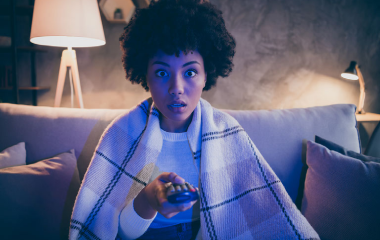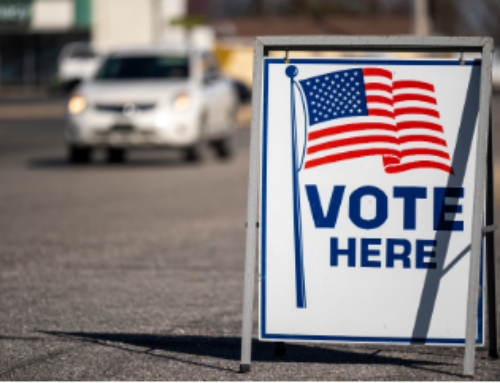The next time you stay up late to indulge in your favorite guilty-pleasure show, keep this in mind: 88% of adults report that they have lost sleep due to binge-watching.
According to a survey from the American Academy of Sleep Medicine (AASM), U.S. adults rank sleep as a top priority, second only to family. However, the results also show Americans are postponing their bedtimes for entertainment, including binge-watching, watching sporting events, playing video games and reading.
“It’s encouraging that Americans rank sleep as one of their highest priorities, but choosing to binge on entertainment at night instead of sleeping has serious ramifications,” said AASM President Dr. Kelly A. Carden. “Sleep is essential to health, well-being and safety, and chronic insufficient sleep can lead to an increased risk of health problems, mood disorders and motor vehicle accidents.”
Screen time is becoming the norm
The way we consume television has changed dramatically in the past few years. A metered, week-by-week wait for a new episode is obsolete for many Americans who now stream their favorite shows on-demand. Nearly 9 in 10 American adults have lost sleep because they stayed up to watch multiple episodes of a TV show or streaming series. While men and women are equally likely to stay up past their bedtime to watch a TV show, binge-watching habits do vary by age. Forty-four percent of 18 to 24-year-olds said they “often” stay up past their bedtime to watch shows, compared with 14% of those 45 and older. And, only 4% of 18 to 24-year-olds have not stayed up to stream a show, while this number jumps to 20% of those 45 or older.
It’s no surprise that more than half of survey respondents (58%) also said that they’ve lost sleep to watch a sporting event. Recorded games lack the excitement of the live event, and spoilers run rampant on the internet. Men are more likely than women to lose sleep, with 72% of men admitting to staying up past their bedtime to watch a sporting event.
Men are also more likely than women to postpone sleep due to video games. Half of survey respondents have lost sleep by playing video games. Young adults are more likely than those 35 or older to have stayed up to play video games, with nearly a third (32%) of those in Generation Z admitting that they lose sleep “often” to play video games.
Women, on the other hand, make up the majority of night-readers, with 71% staying up to finish a book. Overall, two-thirds of U.S. adults have lost sleep due to reading.
Marathon viewing can hurt your health
Sacrificing sleep for entertainment can lead to frustration, worry, and guilt — and these feelings are more common in Generation Z survey respondents. While 24% of respondents admit feeling frustrated by missed bedtimes, nearly a third of Gen Z respondents feel frustrated.
These feelings can compound the insufficient sleep problem, as negative thoughts about missing sleep might make it harder to fall asleep — especially when you try to make up for the lost time.
Postponing sleep can have negative consequences, as a study previously published in the Journal of Clinical Sleep Medicine found that binge-watchers reported more fatigue, more symptoms of insomnia, poorer sleep quality and greater alertness prior to going to sleep.
You don’t have to give up your marathon viewings or bestseller books altogether. To help prioritize sleep consistently, the AASM recommends practicing good sleep hygiene and following a bedtime routine — nightly habits that help you wind down and get ready to sleep. The AASM’s bedtime calculator is a helpful tool to identify a customized, recommended bedtime by age and wake time. The AASM also offers tips for streaming shows without sacrificing sleep.
If you have an ongoing sleep problem, speak with your medical provider, who may refer you to the sleep team at an accredited sleep center for help. You can use the sleep center directory to find a local accredited sleep center.





